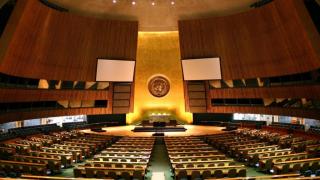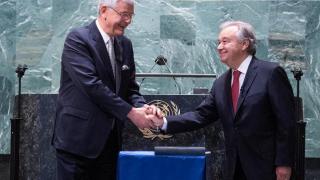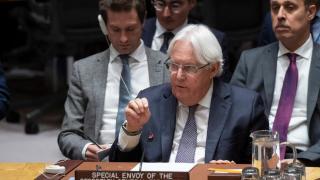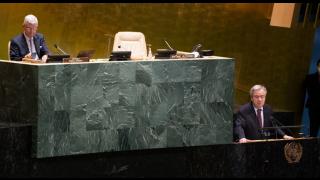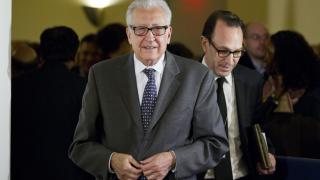
Senior UN officials and other experts have spoken out in favour of further reforms to the process by which the UN leader is selected. As co-founder of the 1 for 7 Billion campaign, UNA-UK welcomes the increasing level of public scrutiny on what has previously been a secretive appointment process.
Convening at the Youth and Leaders Summit in Paris on 18 January to debate the priorities of the next Secretary-General, a number of UN experts, politicians and NGO directors expressed support for the proposal tabled by the 1 for 7 Billion campaign that the UN's next leader serve a single, non-renewable term of office – possibly of seven years.
In the words of Amr Moussa, former Secretary-General of the League of Arab States, a non-renewable term would “liberate the Secretary-General from the pressures of the big powers”.
Lakhdar Brahimi, former Algerian Foreign Minister and Special Representative of the Secretary-General, also expressed support for a single term, and for the 1 for 7 Billion campaign more generally. According to Brahimi, the next leader should be prepared to say, "I am willing to leave tomorrow" as “the UN belongs to the small countries that need it, not the big countries that run it”.
Other participants calling for a single, extended term of office included: Vuk Jeremić, former President of the General Assembly and former Foreign Minister of Serbia (and a rumoured candidate for the position of UN Secretary-General); Martti Ahtisaari, former President of Finland and UN mediator and member of The Elders; Jean-Marie Guéhenno, President of the International Crisis Group; Shaukat Aziz, former Prime Minister of Pakistan.
The next Secretary-General must have “spine”
In response to a question by 1 for 7 Billion’s Yvonne Terlingen on which qualities should be essential in the next UN leader, there was broad consensus in the room that the successful candidate should have the courage to stand up to powerful nations – a characteristic that is currently the front-runner on 1 for 7 Billion’s public poll on the issue.
According to Jean-Marie Guéhenno, Director of International Crisis Group, "a key quality of the next Secretary-General is being prepared to take some risks... They must accept the risk of failure". Bruno Stagno Ugarte from Human Rights Watch agreed: "we need somebody who has the courage to tell the truth… To tell the UN Security Council what it needs to hear".
Vuk Jeremić added that the next leader must have “spine” and should not be afraid to “make full use of the tools at his or her disposal”. Angela Kane, former UN Under-Secretary-General, supported this, suggesting that the next UN Secretary-General take better advantage of Article 99 of the UN Charter, which would empower him or her to bring humanitarian crises to the immediate attention of the Security Council.
Regional rotation “not a rigid principle”
Representing 1 for 7 Billion, Isabelle Younane from UNA-UK asked the panel about their position on ‘regional rotation’ in the selection of the Secretary-General’s selection, namely, the informal practice that each geographical region should have a chance at UN leadership.
Agreeing with 1 for 7 Billion’s position on this issue, Vuk Jeremić said that the selection should not be limited to Eastern Europeans, who are currently the only confirmed candidates:
“I am personally in favour of opening up the process to the whole world… everyone should get a chance, and appointment should be based on merit.”
Angela Kane stated that regional groupings should be "merged or disregarded" and UN member states should instead focus on getting "the best candidate possible" for the job. She observed that as the African region has technically had 15 years at the helm of the UN: “we already have a precedent of disregarding regional rotation”, suggesting “it is not a rigid principle”.
Vuk Jeremić closed the final panel discussion by lauding “the exceptionally significant” reform proposals tabled by 1 for 7 Billion and anticipating further debate on the upcoming selection of the UN Secretary-General, which is due to take place in the second half of 2016.
Photo: Lakhdar Brahimi, former Algerian Foreign Minister and Special Representative of the Secretary-General. Copyright UN Photo/Rick Bajornas


